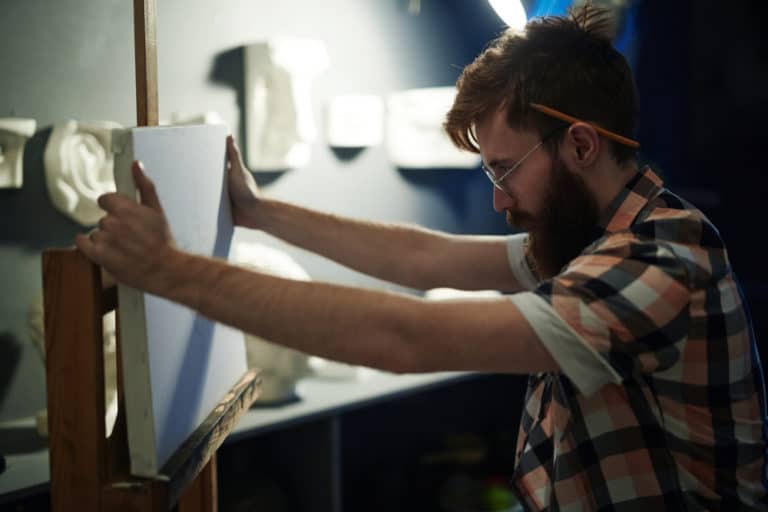How To Develop Patience and Self-Control
We all know how rough it is to be patient sometimes. Our world today is all about speed, shortcuts and instant gratification. Everybody wants to get rich quick! People spend money faster than they can make it! A 20-second ad at the start of a YouTube video can feel like torture!
Ultimately though,
anything worth building takes absolutely ages.
If you can sacrifice short term comfort and immediate pleasure, and put your head down for months or years at a time, who knows the impact you could make on the world. It really would pay dividends to learn to take a longer-term view of your own situation.
Why develop patience anyway?
Here are some studies looking into the effects of patience and self-control, to further illustrate their importance.
This study found that patient people tend to experience less negative emotion and depression. Interestingly this same study also found a link between patience and spiritual transcendence, if you are into that sort of thing!
Another study investigated the link between self-control during adolescence and health problems in early adulthood. It found that subjects with particularly low levels of self-control were significantly more likely to be diagnosed with 9 of the 10 measured health problems later in life. It actually suggests that the government could target the development of self-control in young people, to improve long term public health.
This study analysed economic data from 76 countries. Correlations were found between patience and income levels, income growth, the accumulation of physical capital, human capital and productivity.
This study followed a cohort of 1000 children from birth, through to the age of 32. The researcher found that childhood self-control predicted physical health, personal finances, substance dependence and criminal offending outcomes. (In another study of 500 sibling pairs, the sibling with lower self-control had poorer general outcomes, despite the shared family background!)
The data linked above paints a very clear picture of why you would want to improve your patience and self-control. But to what extent can you actually do anything about it? Is it just something you are born with, or a skill that you can actively build over time?
Are patience and self-control innate? Can they be developed?
This fascinating study looks at patience, specifically in the investment context. It shows that patience is developed over time, by analysing the changes in peoples patience with their age and tenure.
Although you already have a certain level of self-control and patience as a result of your environment and upbringing, it is absolutely something that can be built like a muscle.
Studies like the one above should put your mind to rest. Wherever your patience is at right now, there are practical steps that you and I can take to improve our patience and operate in the world with a longer-term view.
5 Practical steps you can take to increase your level of self-control

Set both long term and short term goals
Goal setting is a well-documented asset to any individual or organisation trying to consistently improve. We must have 20 articles on this topic by now, as it is something which we wholeheartedly believe can improve peoples lives significantly. (Check out this introduction to goal setting if you are still on the fence).
Have an honest conversation with yourself. What do you want out of life? What would genuinely excite you? Create some long term goals. Then set some short term goals for this year and this month. The idea is that the work you are putting in this month is getting you slightly closer to your ultimate ambition.
When you start to creep forwards in this positive way, you will find yourself operating more for that long term result and less for fleeting short term minutia. In this way, your patience will improve.
Move past comparing yourself to other people
A lot of impatience stems from envy; from wanting what another man has or feeling inferior to someone else’s level of “success”. We feel the need to seem like we are winning or that we’ve “got it together”, to somehow justify ourselves to our friends and family. There are a few issues with this mentality:
- Who knows the actual reality of other people’s situations? You might see another man of your age in a private jet on Instagram, and suddenly feel like what you’ve got going on isn’t enough. What you dont see is that it’s all fake, it’s all to sell you something, or it happened for 2 minutes out of his year and he’s stunting because he’s insecure.
- How do you really measure a good life? If someone’s got all the cash and his wife hates him, is that a success? If someone has made millions of dollars selling useless stuff to insecure kids who don’t know better, is that a winner? Is he winning? Ultimately only you can define your own idea of success.
- We all have infinitely different opportunities. We know different people. We had different parents. We were raised with different ideas. We have different brains. There is, in some ways, no level playing field. If my best effort results in a decent job and a little house and a cool family, and your best effort results in a new energy source that changes the world, have I failed? Or have I stepped up and gone for it? Any time I’m looking at you is time I could be improving myself.
Get some experience!
I have already mentioned a study that showed that amongst investors, patience increases with age and tenure. There is in some ways no way around it: As you get older, gain more experience and discover how the world works, you tend to become more patient.
Whilst age is not something you have much control over, experience certainly is. Push yourself to gain experience within your industry. Be beyond your years in terms of the things you know and the things you have done. With this pursuit, you will find yourself taking a longer-term view of your situation and the wider world.
100% commitment is easier than 98% commitment
A good friend of mine shared this philosophy with me a few years ago now, and I found it deeply profound. By being 100% committed to a path, the decision-making process is simplified. Anything that gets you closer to your goal, is unavoidably essential. Anything unrelated to your goal is absolutely unimportant. It is a brutal and relentless attitude to adopt, but it is also a straightforward and meaningful way to live.
Whenever this kind of topic is bought up, I am reminded of one of my favourite quotes by Jonny Ive. Ive was the head designer at Apple, who spent a lot of time with Steve Jobs.
“Steve was the most remarkably focused person I’ve ever met in my life…You can achieve so much when you truly focus…One of the things that Steve would say is, how many things have you said no to? …What focus means, is saying no to something that you, with every bone in your body, think is a phenomenal idea. And you wake up thinking about it, but you say no to it because you’re focused on something else”
Jonny Ive
Work on your own self-image
One reason that people become impatient and lack control in their lives, is because they feel as though they need to appear like they are “winning” to themselves or someone else. Why? What do you need to prove ultimately?
The antidote for this kind of impatient insecurity is genuine self-awareness and esteem. If you know who you are and are comfortable in your own skin, you can then just put your head down and graft. Let people talk about this and that. They don’t know you as you do.
read also: How to become ambitious and motivated!
7 great men and women on developing patience and self-control

“The two most powerful warriors are patience and time”
Leo Tolstoy
“Two things define you: your patience when you have nothing and your attitude when you have everything”
George Bernard Shaw
“We could never learn to be brave and patient, if there were only joy in the world”
Helen Keller
“Patience is the art of concealing your impatience”
Guy Kawasaki
“Patience, persistence and perspiration make an unbeatable combination for success”
Napoleon Hill
“When I was 20, I thought I was 30- but I was so far from it. When you’re young, you want everything to happen now. As you mature, you can look back and see all the great things you achieved with time and patience”
Elisha Cuthbert
“Patience- that blending of moral courage with physical timidity”
Thomas Hardy
Read also: 55 goal setting quotes from the best of men
More top work on developing character
There is a huge amount of great self-development content out there, but I’d like to mention a few specific resources that have left a significant impression on me personally.
I am a huge fan of the work of former radio host and speaker Les Brown. His story is a true rags to riches account, and he is incredible at what he does. Here is a short excerpt from one of his most famous speeches:
If I had to choose just one book to recommend on the topics of patience and character development, it would easily be “An Unsung Hero-Tom Crean“.
The book is a biography of Tom Crean, a humble farmer’s son who ran away to join the navy when he was 15 and who ended up serving on 3 of the great polar exploration expeditions. It is a historic account of a genuinely heroic man who saved countless lives and earned massive respect from the great navy generals of the time.
Reading the book will leave you inspired to fulfil your potential, and remain positive and good-humoured in the face of impossible challenges. You can find the book on Amazon, here is a link.






